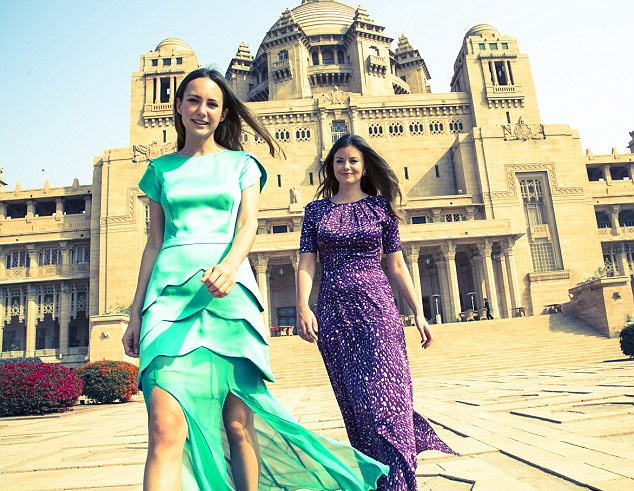



“We won a United Nations Global Initiative to Fight Human Trafficking (UN-GIFT) award before we’d even sold our first dress!” That's a boast delivered with delightful innocence by Lady Natasha Rufus Isaacs, co-founder of Beulah, a small London-based fashion label that continues to land outsized punches in its fight to combat the horrors of human trafficking.
Beulah’s story is more than a little infectious. Its journey—perhaps more fairly described as a sprint—from idea to global recognition epitomises a type of philanthropy impressive in its immediacy and impact. Beulah had yet to make its first sale when the company received a formal nod of approval from the United Nations in January of 2010. Despite the startup’s lack of employees and being run from a parent’s basement, Beulah was news.
The label launched with the consciously one-dimensional public purpose of raising awareness of modern slavery. Largely thanks to the duo’s network, Beulah was able to almost instantly deliver their message through enviable channels.
Quickly, with star customers from Sarah Jessica Parker to Kate Moss (via Pippa Middleton), famous bodies were snapped in its clothes. And alongside each mention of the shade of silk that Demi Moore sported was often a reference to the company itself. With the attention of febrile, fashion-obsessed teenage girls as well as seasoned Hollywood fashionistas, the outrage of human trafficking hit fertile, new minds. The company boasts more than 600 pieces of individual coverage in publications like Vogue, Harpers, and Cosmopolitan. In kind, their butterfly-logoed brand has built a life of its own.
Surprisingly few people are aware of the prevalence of modern slavery. In 2010 the UN reported that human trafficking represents a $32 billion-a-year industry in more than 130 countries. Beulah’s founders were as ignorant as everyone else until a months long visit to the Atulya slum in Delhi, where they volunteered at an aftercare center for female victims of the sex trade. Appalled by the realities they’d never considered, the pair resolved to shed light on the widely ignored practice.
“People seem to love the story behind the brand,” Rufus Isaacs says. The potency of their message has captured their clientele, and their own social circle, which includes both Prince William and Prince Harry, has similarly dazzled the tabloid press. With the added nuance of their shared Christian faith, the brand has been ripe for widespread publicity. Perhaps most importantly in the long run, Beulah’s product quality may be its quietest source of pride. This latter fact is a further credit to both women, both of whom share a lack of professional fashion experience.
“We’ve been very lucky,” Rufus Isaacs admits. The Beulah founders have cleverly leveraged the press attention that they hadn’t expected. When Kate Middleton chose to wear a Beulah design on her first official tour of South East Asia with Prince William, recognition of the label soared.
As is the case in much social entrepreneurship, Beulah has implicitly traded commercial viability for a tangible impact. (In the four years since its inception Beulah has yet to turn a profit.) And, for once, Britain's tabloid press is performing a public service.